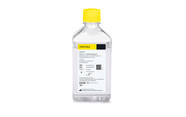Business-in-Brief
Beating the backlog, a campaign to counter criticism, and a first foray into biosimilars… What’s new for pharma in business?
Regulation
A report by the US Government Accountability Office (GAO) has found that the FDA has a backlog of 1000 foreign sites, despite the fact that, over the past decade, the FDA has nearly tripled the number of foreign inspections it carries out per year. Over the past five years, the FDA has also reduced its catalog of drug establishments with no inspection history to 33 percent of foreign establishments, compared to 64 percent. However, according the GAO, “the number of such establishments remains large, at almost 1,000 of the approximately 3,000 foreign establishments. FDA plans to inspect all of these establishments over the next 3 years.”
Last month The UK Prime Minister Theresa May signaled that she intends to take the UK out of the EU single market and customs union with potential significant implications for trade and investment. But what about the EMA? Health Secretary Jeremey Hunt said that he “doesn’t expect [the UK] to remain within the EMA.” He went on to say “we could potentially have mutual recognition” and he will be arguing for the “closest possible relationship.”
Politics
Should the US government buy Gilead? Writing in Forbes, Peter Bach and Mark Trusheim argue it would cost the taxpayer around $156 billion upfront, but by divesting unneeded assets and repatriating Gilead’s overseas cash (tax-free of course), the final price would come to $40 billion – or $15,700 per patient. That’s a 63 percent saving on the $113 billion ($42,000 per patient) it would cost to treat all those still infected with Hepatitis C. “Ideology matter less when the numbers work,” say the authors. “In this unique case they do.”
PhRMA has unveiled a new campaign to counter industry criticism. The first television ad, which features Dylan Thomas’ poem “Do not go gentle into that good night,” juxtaposes pills and photographs of presumed patients, and shows fastidious scientists pacing down hallways and peering through microscopes. The PR campaign aims to “explore the innovative research and technological breakthroughs of America’s biopharmaceutical industry and get to know the people behind the fight to prevent, treat, and cure disease.”
Marathon Pharmaceuticals has paused the US commercial launch of its newly approved treatment for Duchenne muscular dystrophy, Emflaza (deflazacort), after a backlash regarding the price tag of $89,000 per patient per year. US patients have been importing generic versions of the drug from Canada and European countries for years and using it off-label, at a much lower cost. Critics have pointed out that Emflaza is not a revolutionary treatment and have also accused the company of abusing the FDA’s orphan drug program. Marathon have attempted to explain the need for a high price in an open letter to the Duchenne community.
Manufacturing
Eli Lilly has halted its planned €200 million expansion in Cork, Ireland, reportedly over concerns around Donald Trump’s latest plans. A spokesperson for the multinational told the Irish Examiner that a final decision on whether it will proceed is now under review, and will be made by Lilly’s global board at the “appropriate stage of the process,” reports Newstalk.
India’s Aurobindo Pharma has moved into biosimilars development with the acquisition of four products from Swiss company TL Biopharmaceutical AG. As part of this agreement, TL will supply all the developmental data for four molecules and Aurobindo and/or its affiliates will develop, commercialize and market the products globally.
- Fortune, “Biotech stocks plunge after Trump says pharma is ‘getting away with murder’ on drug prices”, (2016). Available at: for.tn/2kpbFvm. Accessed February 15, 2016.
- The Motley Fool, “Donald Trump just leveled drug companies with these 4 words”, (2016). Available at: bit.ly/2kJ86w8. Accessed February 15, 2016.
- The Washington Post, “Trump takes aim at drug companies: I don’t like what has happened with drug prices”, (2016). Available at: wapo.st/2lJYoOi. Accessed February 15, 2016.
- CBS News, “Democratic debate: which enemy are you most proud of?” (2016). Available at: cbsn.ws/1L1lkdI. Accessed February 15, 2016.
- Reuters, “Clinton outpaces rivals in drug company donations”, (2016). Available at: reut.rs/26891YZ. Accessed February 15, 2016.
- QuintilesIMS, “Outlook for global medicines through 2021: balancing cost and value”, (2016). Available at: bit.ly/2hdPiXO. Accessed February 15, 2016.
- Wall Street Journal, “Obama says Donald Trump will be driven by pragmatism not ideology as president”, (2016). Available at: on.wsj.com/2kwyo40. Accessed February 15, 2016.
- Centers for Medicare & Medicaid Services, “2015 national health expenditure data”, (2016). Available at: go.cms.gov/1O1cWhR. Accessed February 15, 2016.
- Gallup, “Americans’ views of pharmaceutical industry take a tumble”, (2016). Available at: bit.ly/1OPDO3q. Accessed February 15, 2016.
- T Stossel, Pharmaphobia: How the conflict of interest myth undermines American medical innovation, 1st edition, Referencing Press: 2015.
- The Washington Post, “Trump’s win may be just the beginning of a global populist wave”, (2016). Available at: wapo.st/2lKb9Z9. Accessed February 15, 2016.
- J Castellani, “The changing healthcare environment”. Presented at the Pharmaceutical Management Science Association Annual Conference, April 20, 2015; Arlington, VA, USA.
- Axtria Insights, “The relationship between drug price controls and patient health outcomes. White paper available”, (2016). Available at: bit.ly/2lPLXfG. Accessed February 15, 2016.
- PhRMA, “Advocacy intellectual property”, (2016). Available at: onphr.ma/2lPB65D. Accessed February 15, 2016.
- Axtria Insights, “Econometric analysis of biopharmaceutical transfer pricing”, (2016). Available at: bit.ly/2lgtTi6. Accessed February 15, 2016.
- R Peters, “Bio/Pharma’s 2017 agenda”, Pharm. Tech., 41, 16-18 (2017).

Over the course of my Biomedical Sciences degree it dawned on me that my goal of becoming a scientist didn’t quite mesh with my lack of affinity for lab work. Thinking on my decision to pursue biology rather than English at age 15 – despite an aptitude for the latter – I realized that science writing was a way to combine what I loved with what I was good at.
From there I set out to gather as much freelancing experience as I could, spending 2 years developing scientific content for International Innovation, before completing an MSc in Science Communication. After gaining invaluable experience in supporting the communications efforts of CERN and IN-PART, I joined Texere – where I am focused on producing consistently engaging, cutting-edge and innovative content for our specialist audiences around the world.


















